Number Recognition Numbers up to 100 Worksheets for Ages 4-9
27 filtered results
-
From - To
Unlock your child's numerical potential with our Number Recognition Numbers up to 100 Worksheets for Ages 4-9! Designed to make learning fun and engaging, these worksheets help young learners identify and understand numbers from 1 to 100. Perfectly tailored for children in preschool through third grade, our resources aid in developing strong counting skills, number sequencing, and visual recognition. Interactive exercises, such as matching and fill-in-the-blank, keep kids motivated and excited about math. Give your child a head start in their mathematical journey with these comprehensive, easy-to-use worksheets! Explore today and watch their confidence grow!
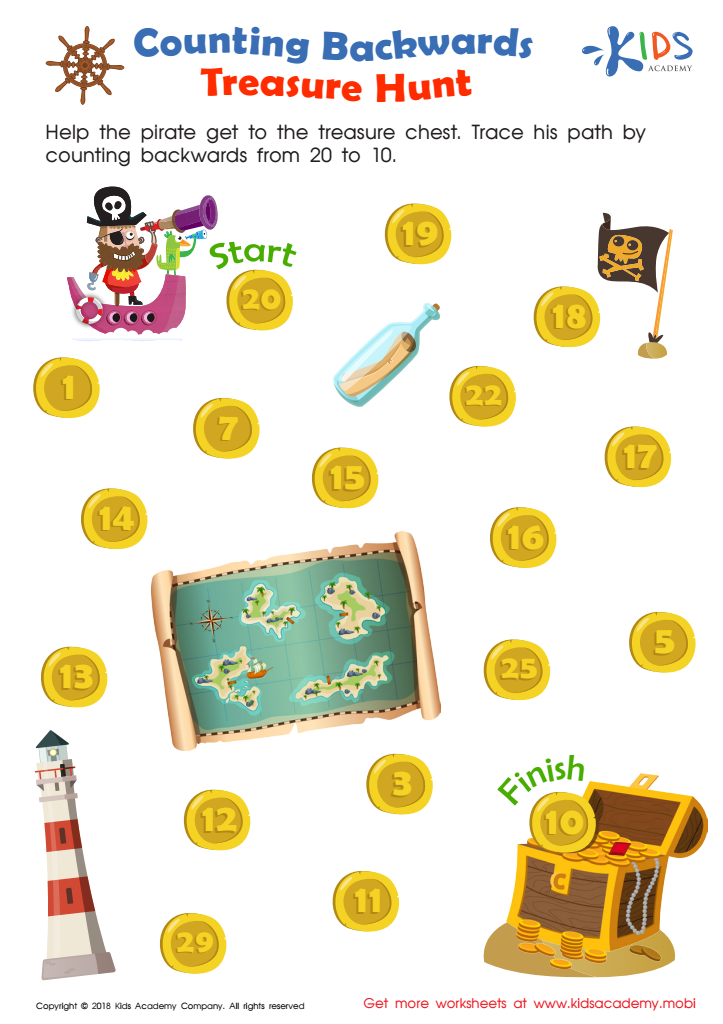

Counting Backwards: Treasure Hunt Worksheet
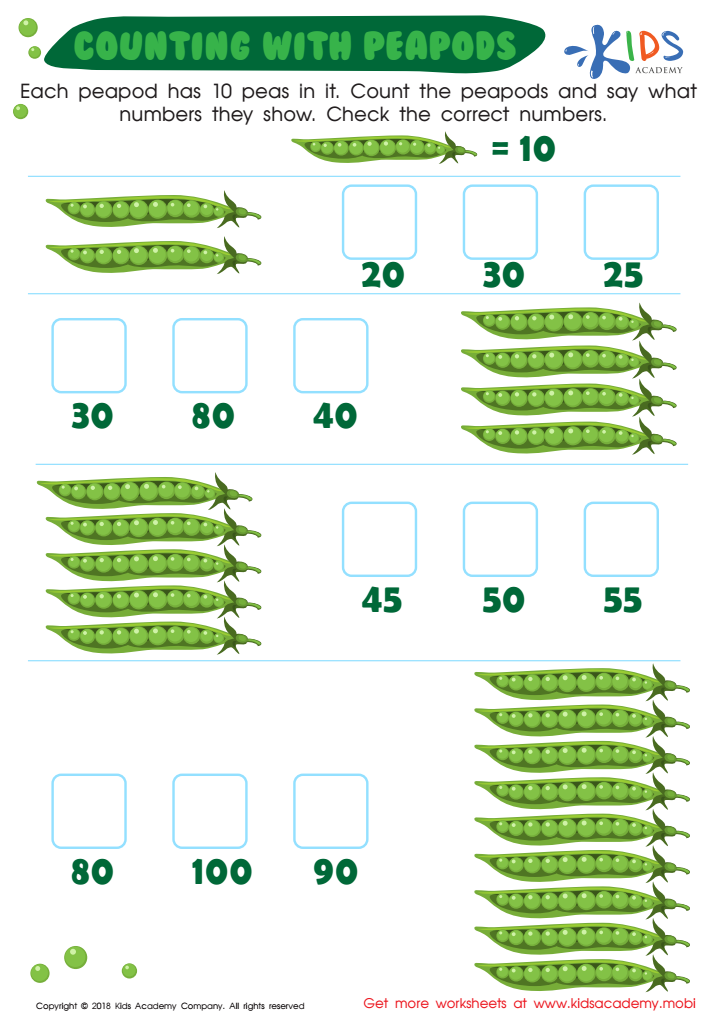

Number Worksheet: Counting With Peapods
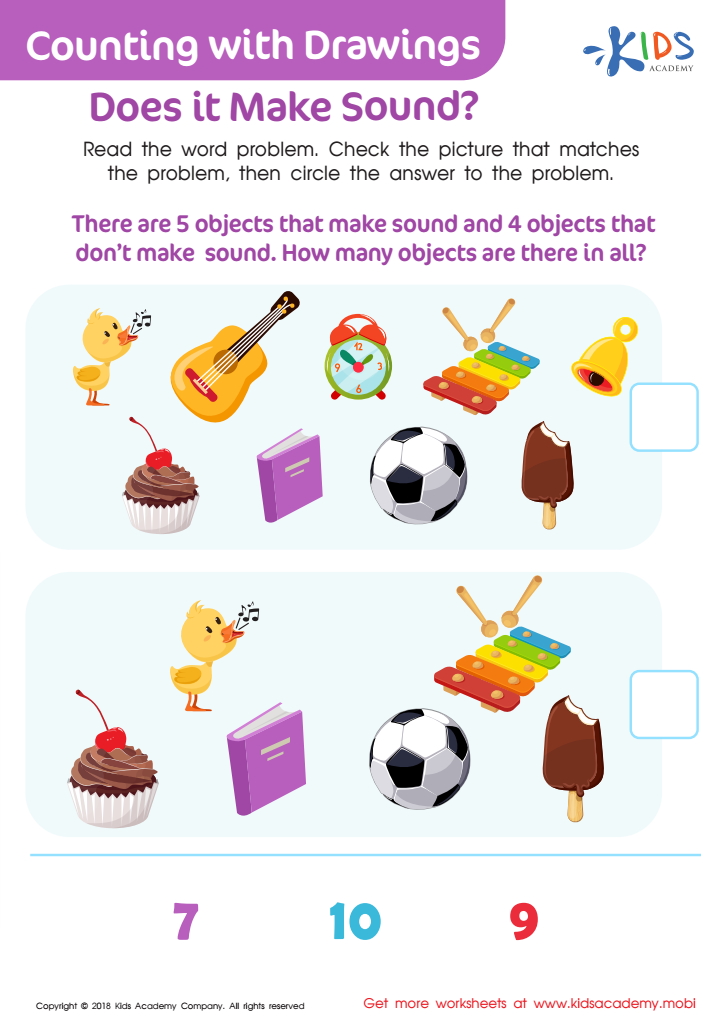

Counting With Drawings. Does It Make Sound? Worksheet
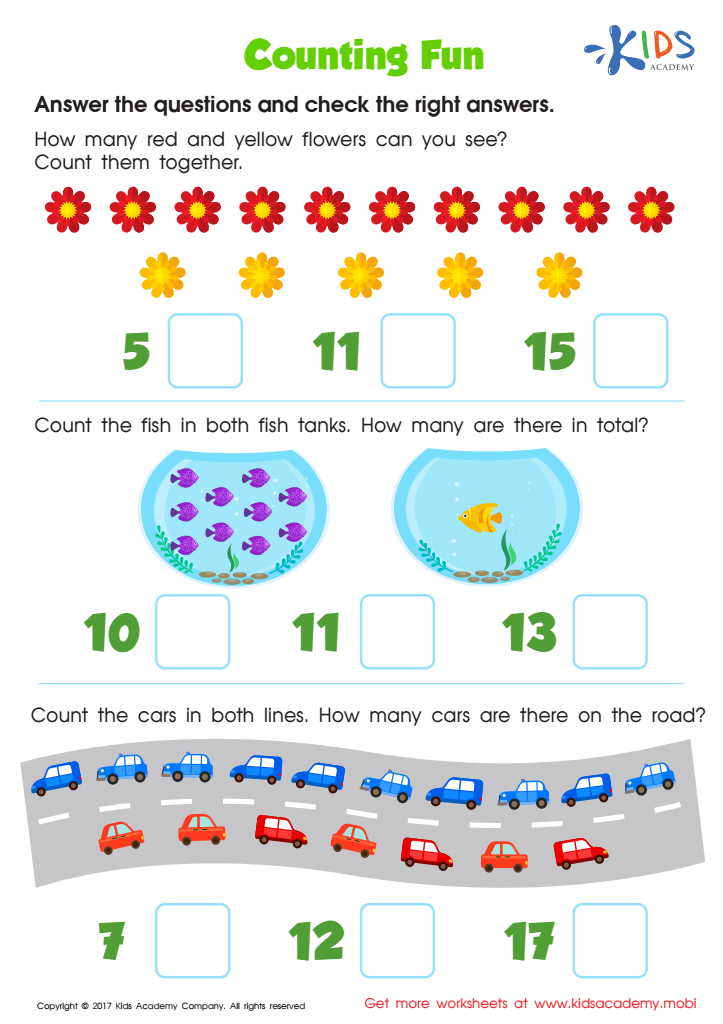

Counting Fun Worksheet
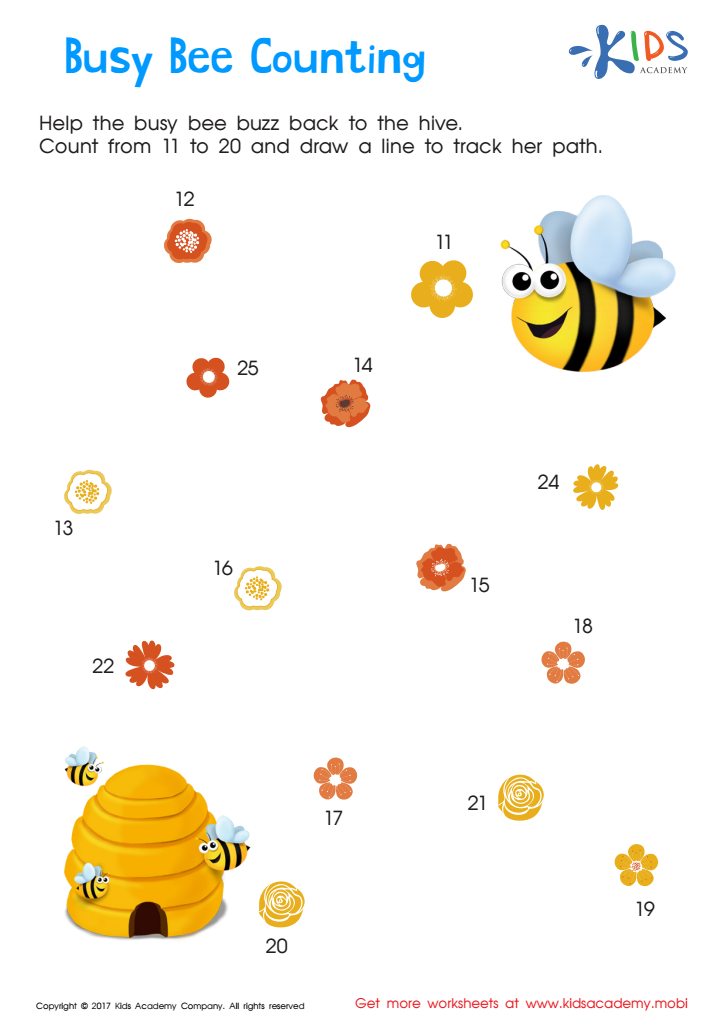

Ordering 11–20: Busy Bee Counting Worksheet
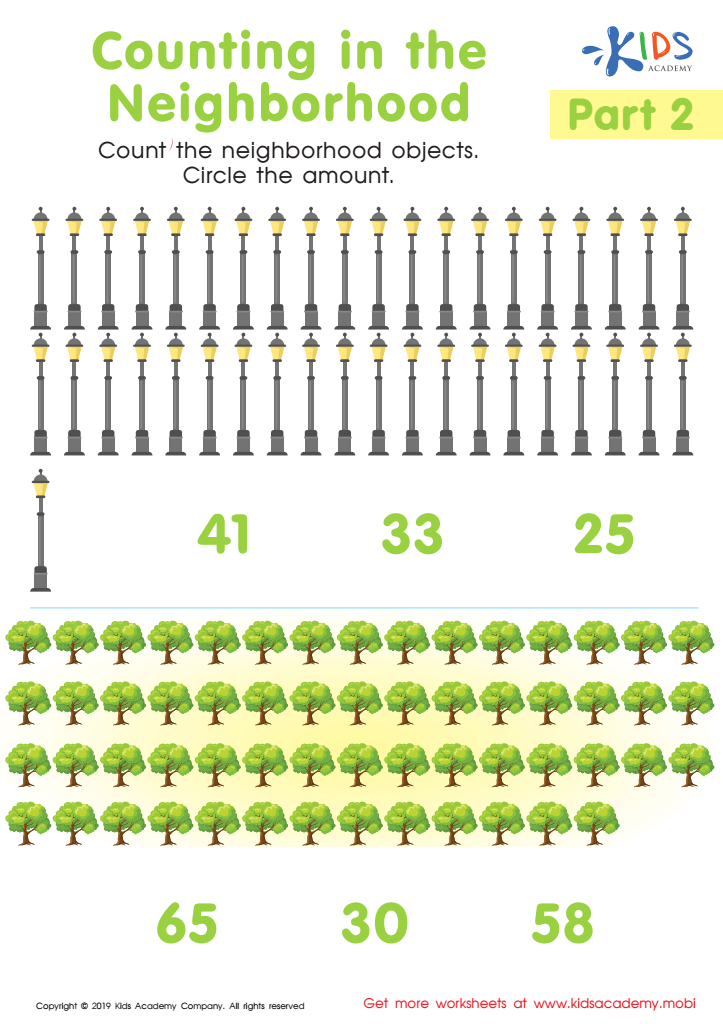

Counting In The Neighborhood Part 2 Worksheet
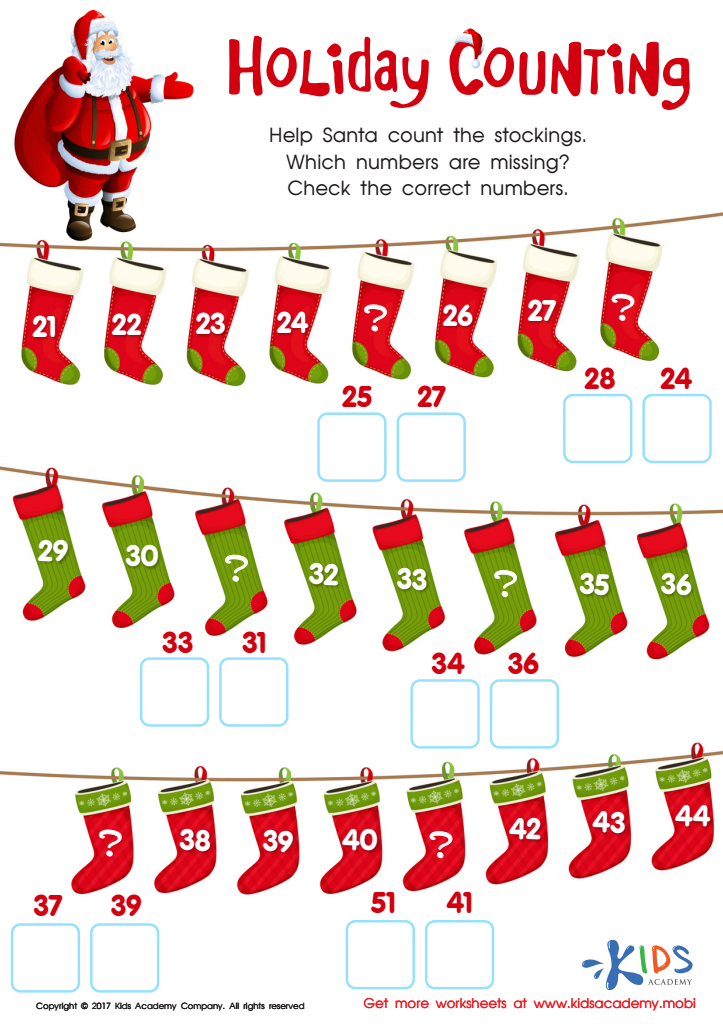

Holiday Counting Worksheet
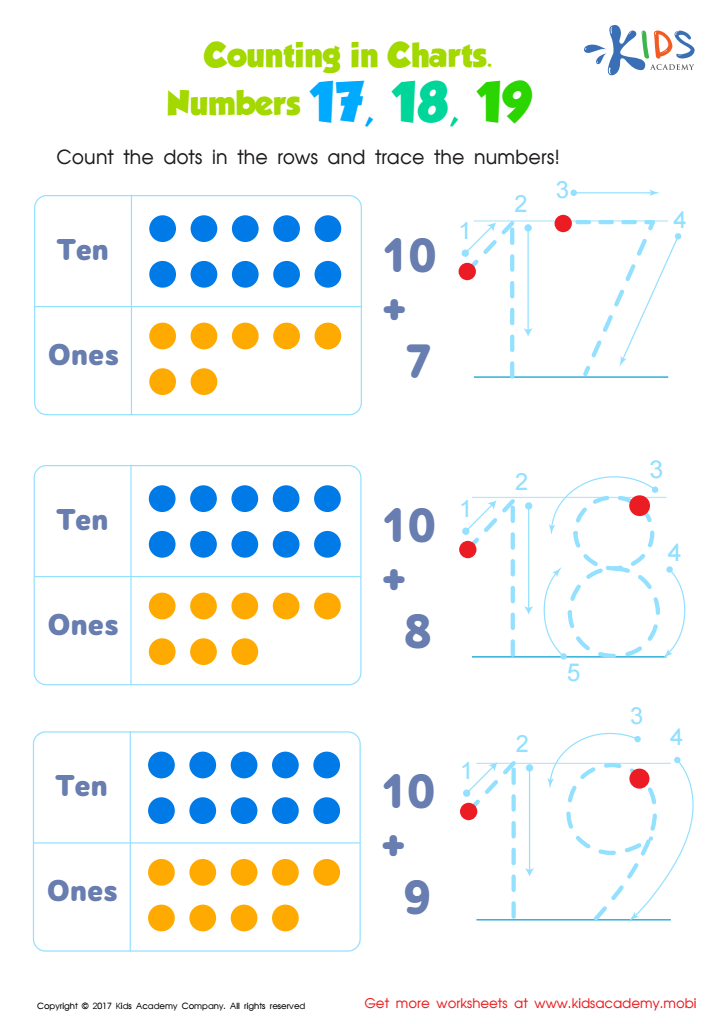

Kindergarten Number Tracing: Counting in Charts Worksheet
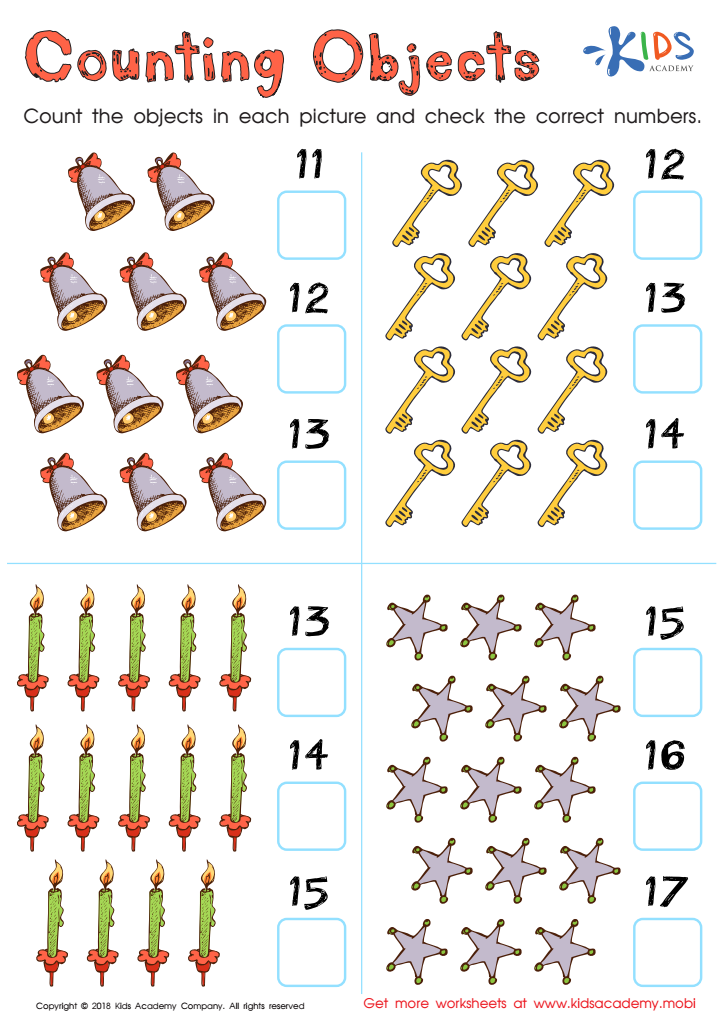

Counting Numbers Worksheet For Kindergarten
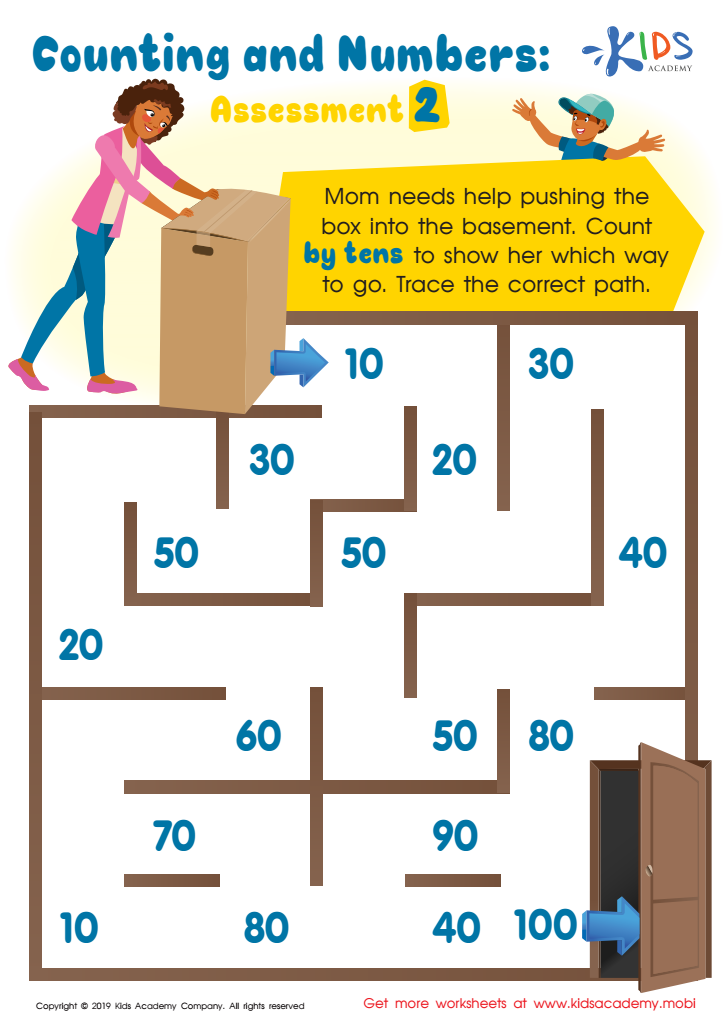

Counting and Numbers: Assessment 2 Worksheet
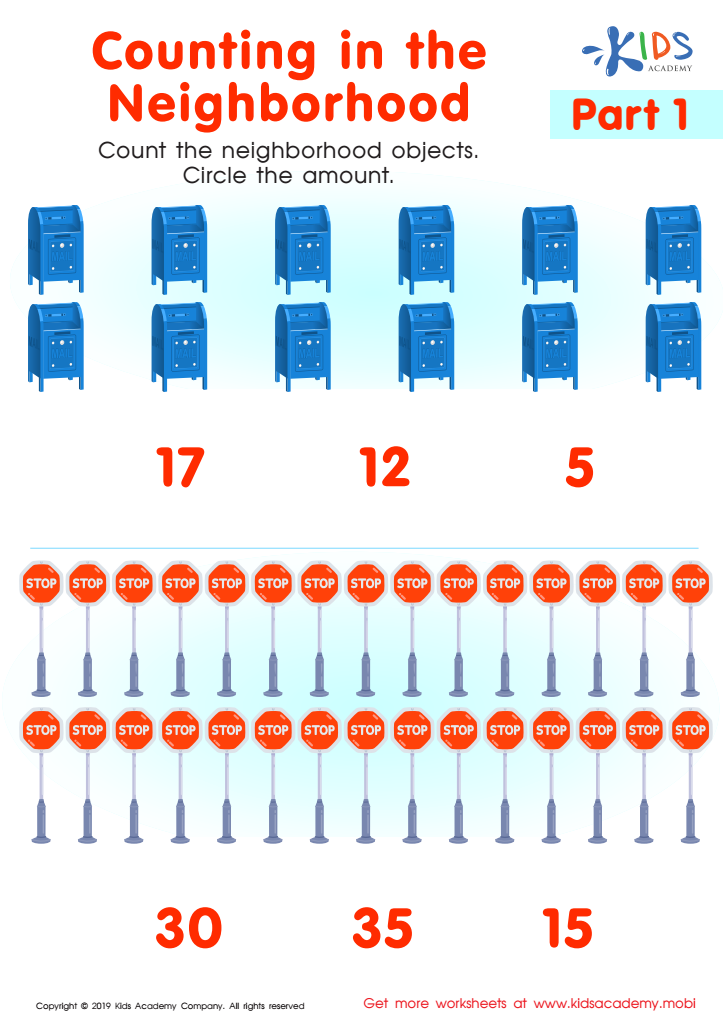

Counting in the Neighborhood Part1 Worksheet
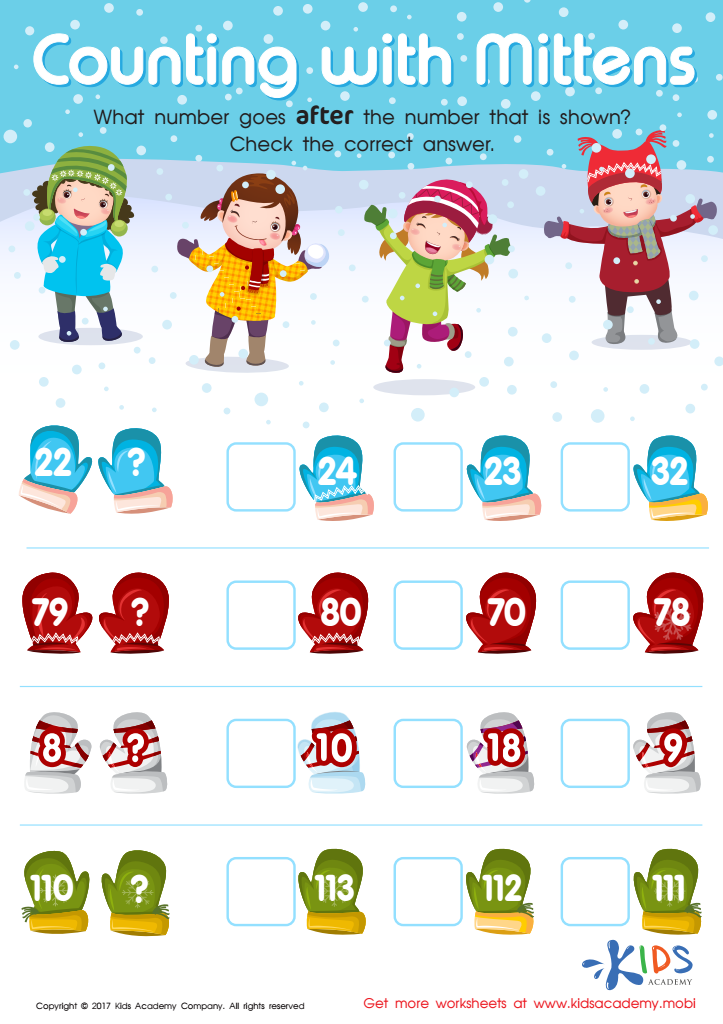

Counting with Mittens Worksheet
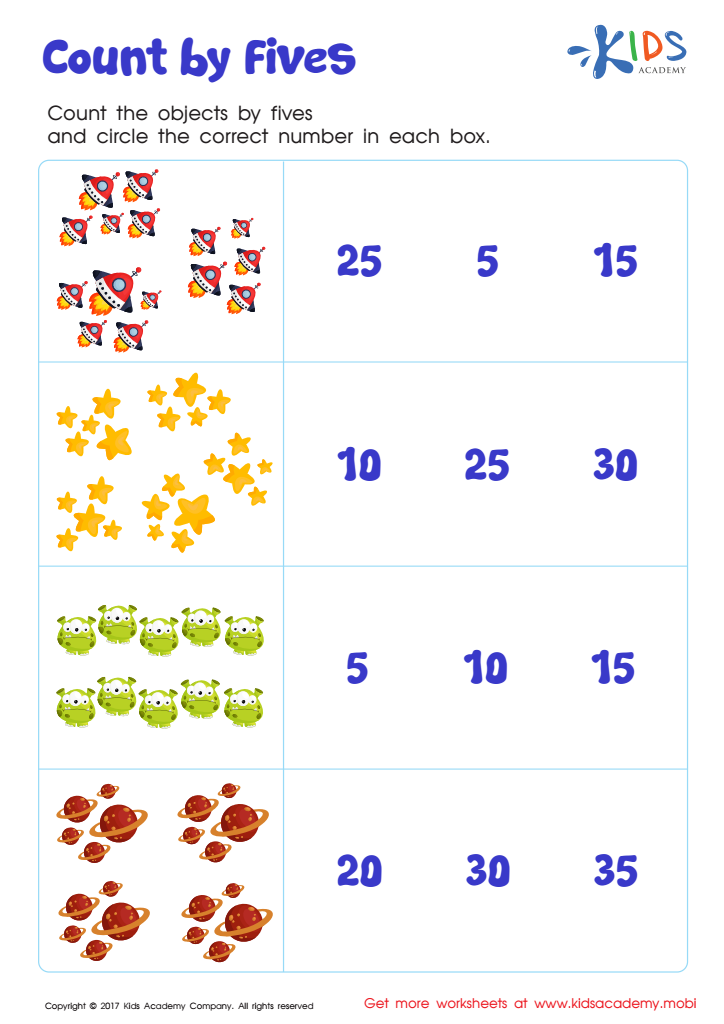

Skip Counting by 5s: Space Math Printable
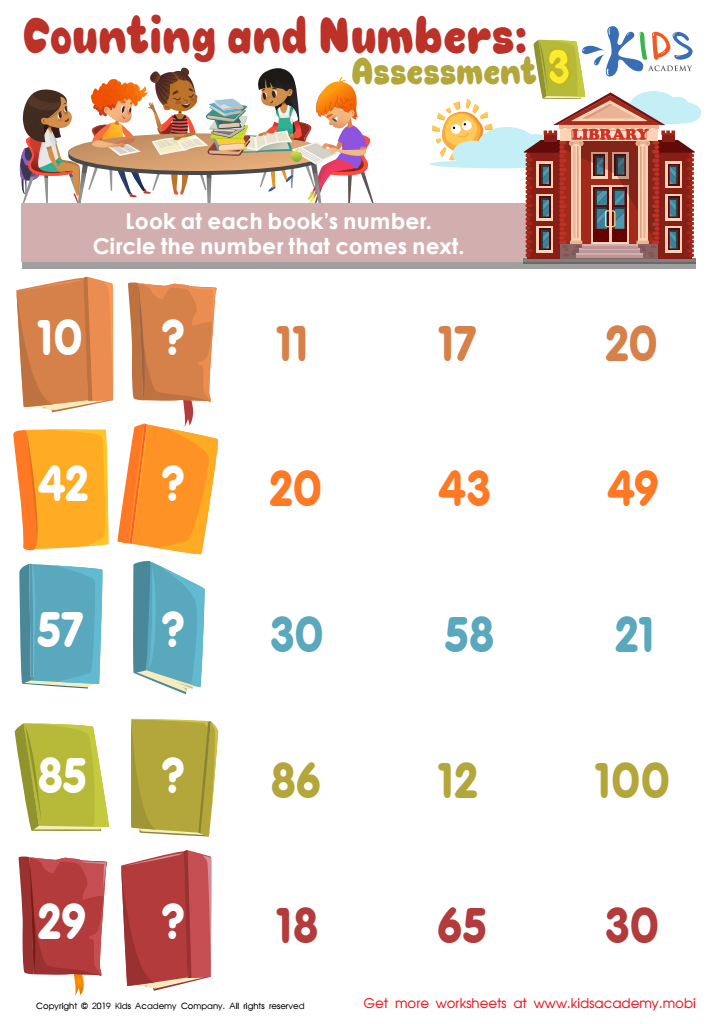

Counting and Numbers: Assessment Worksheet
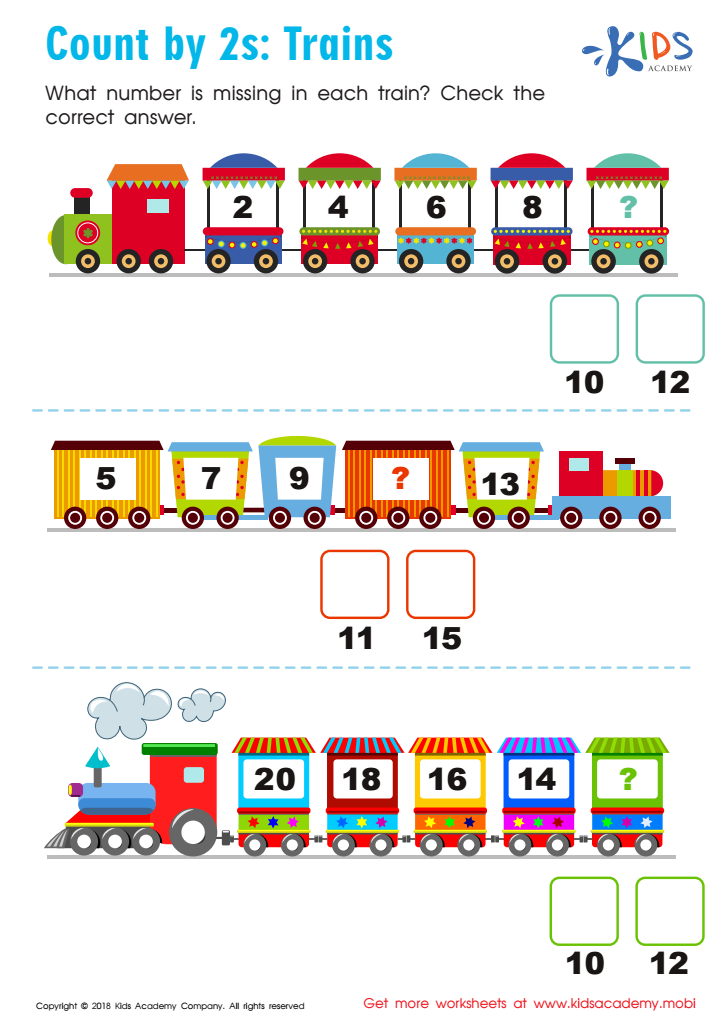

Count by 2's: Trains Worksheet
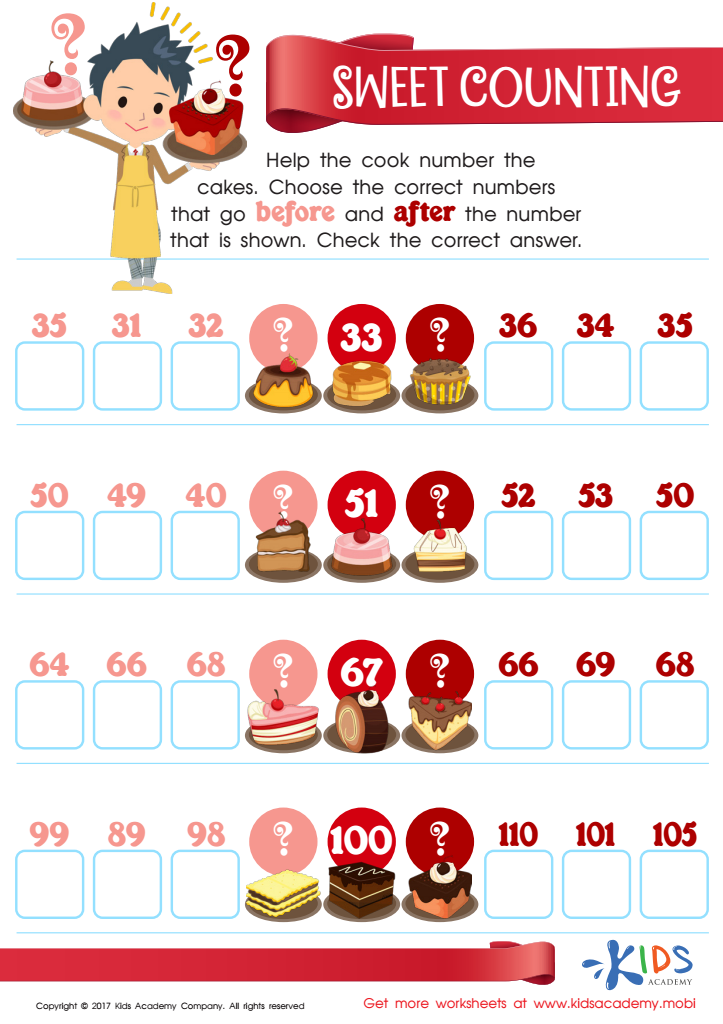

Sweet Counting - Part 1 Worksheet
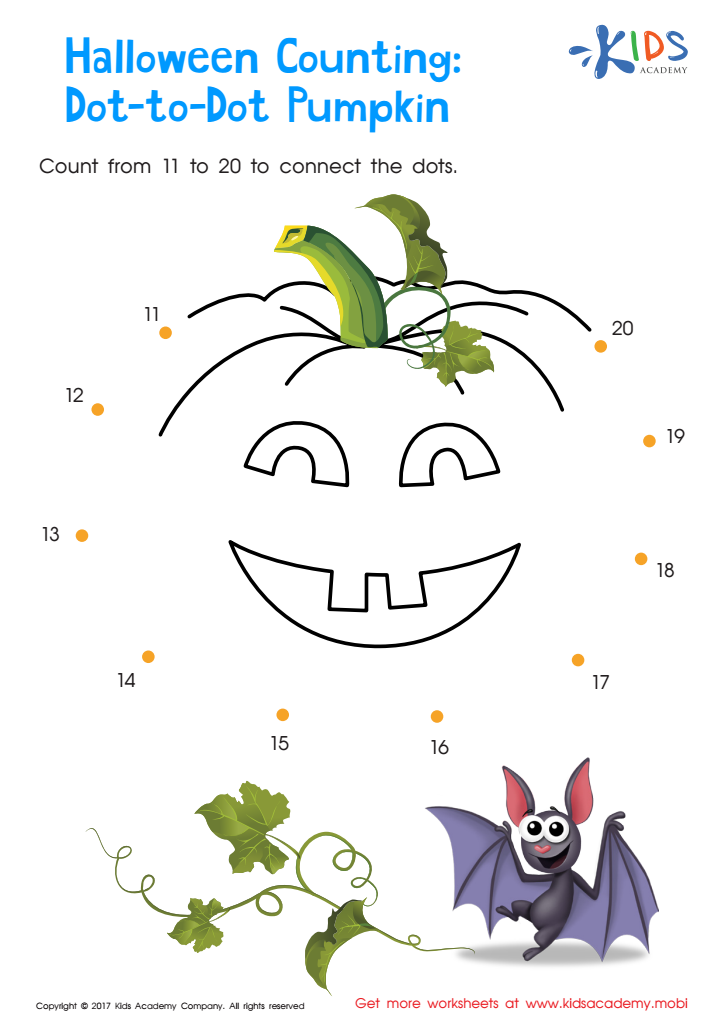

Ordering 11–20: Halloween Counting Worksheet
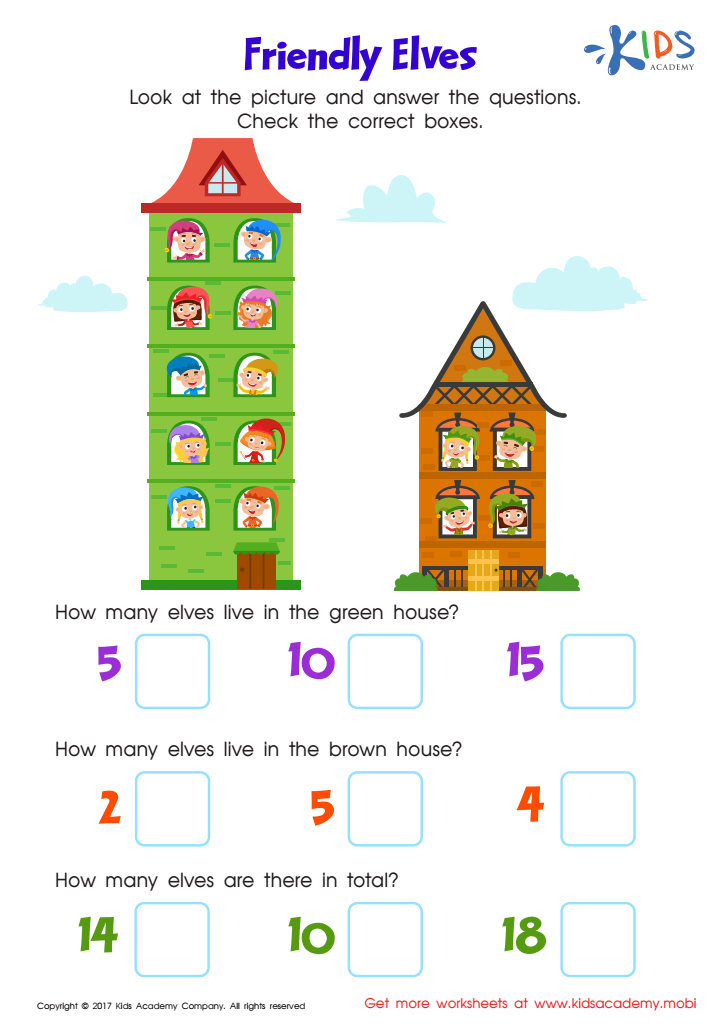

Place Value: Friendly Elves Worksheet
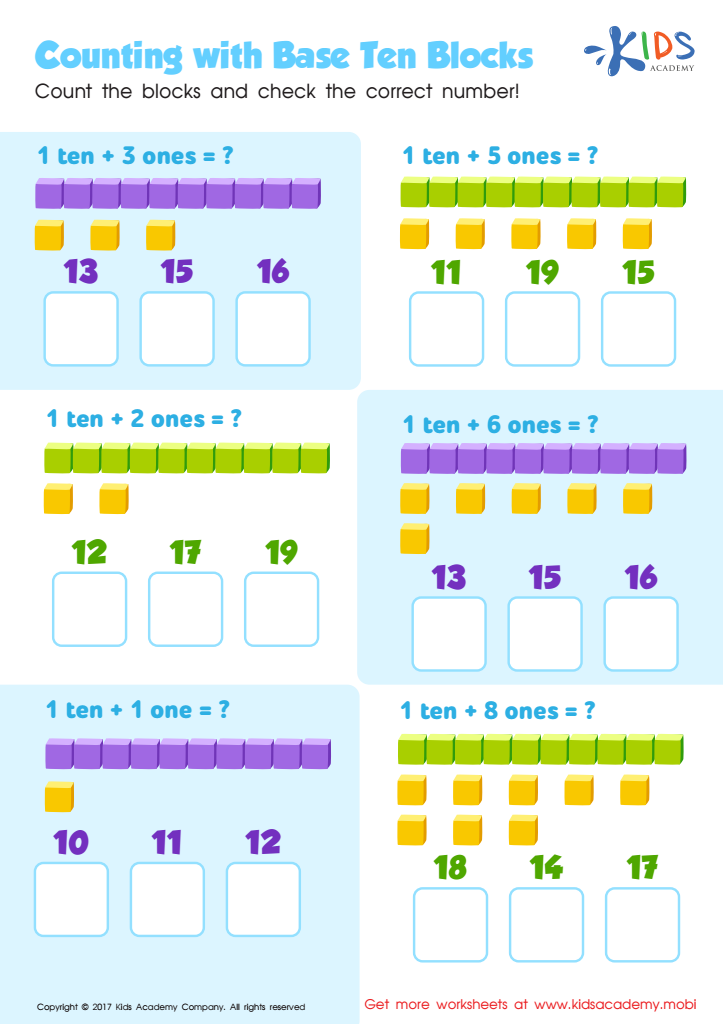

Counting with Base Ten Blocks Worksheet
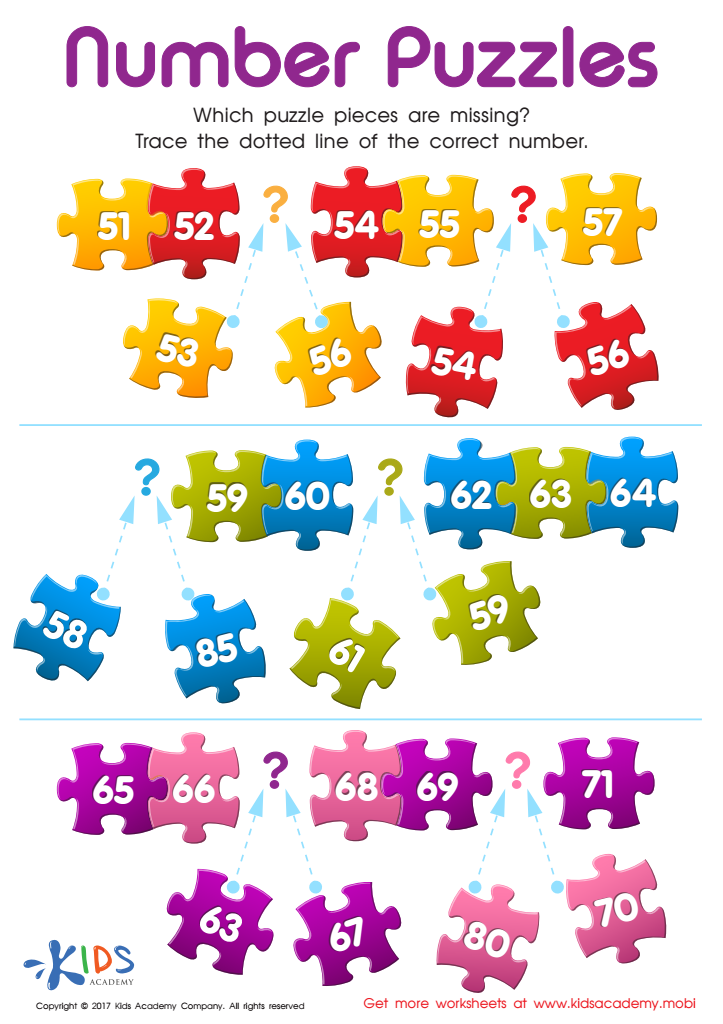

Number Puzzles Worksheet
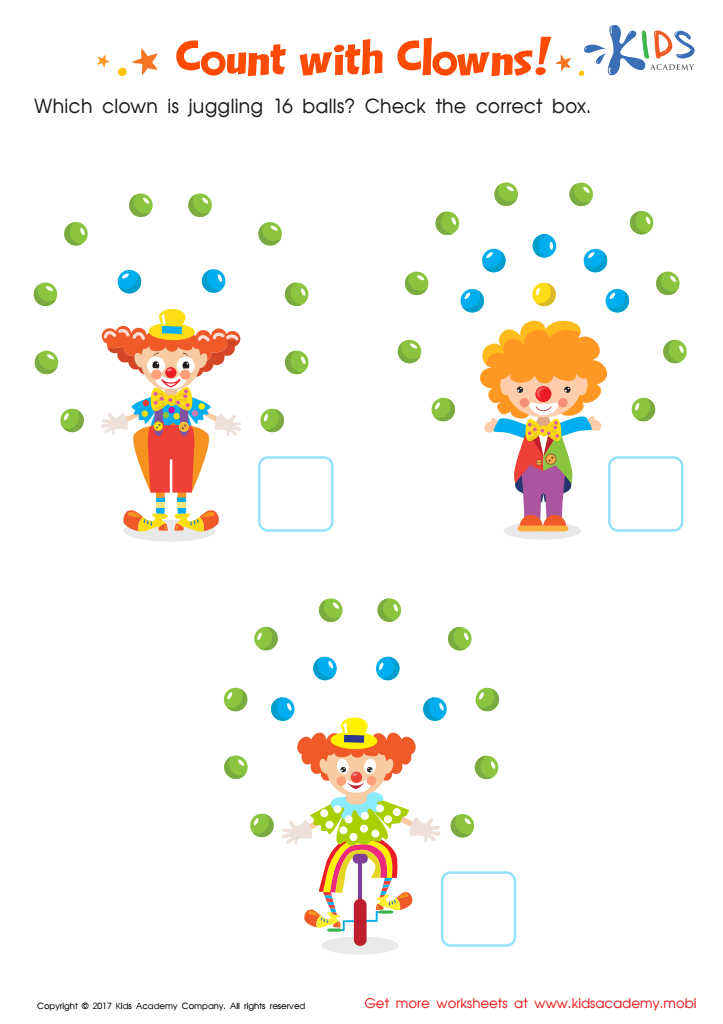

Count with Clowns Worksheet
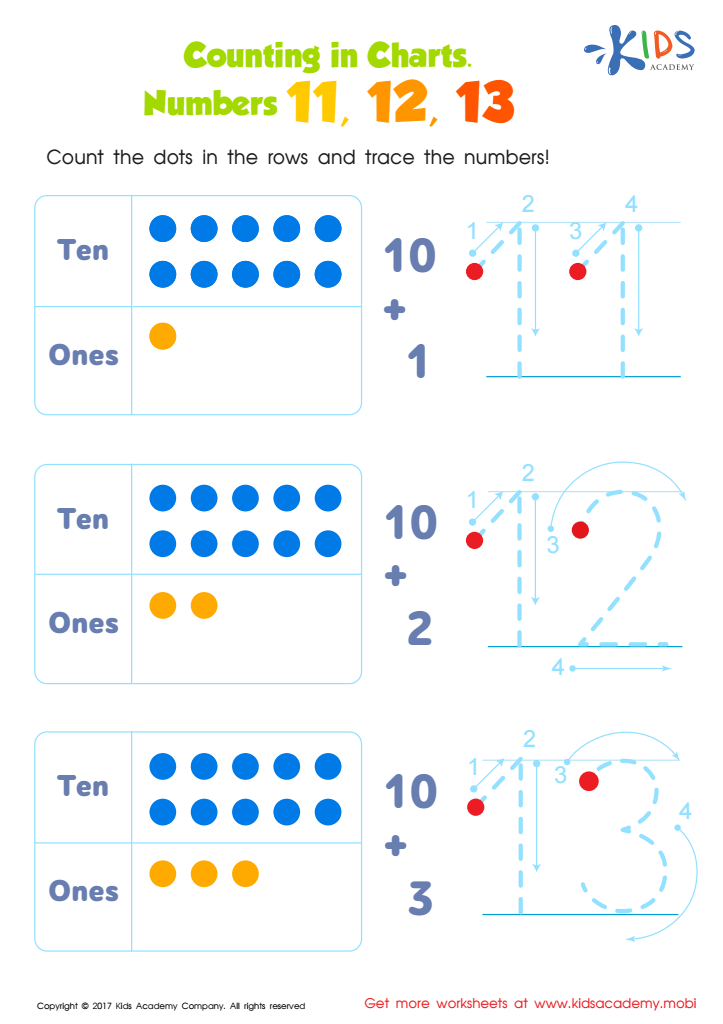

Number Tracing Worksheet For Kindergarten
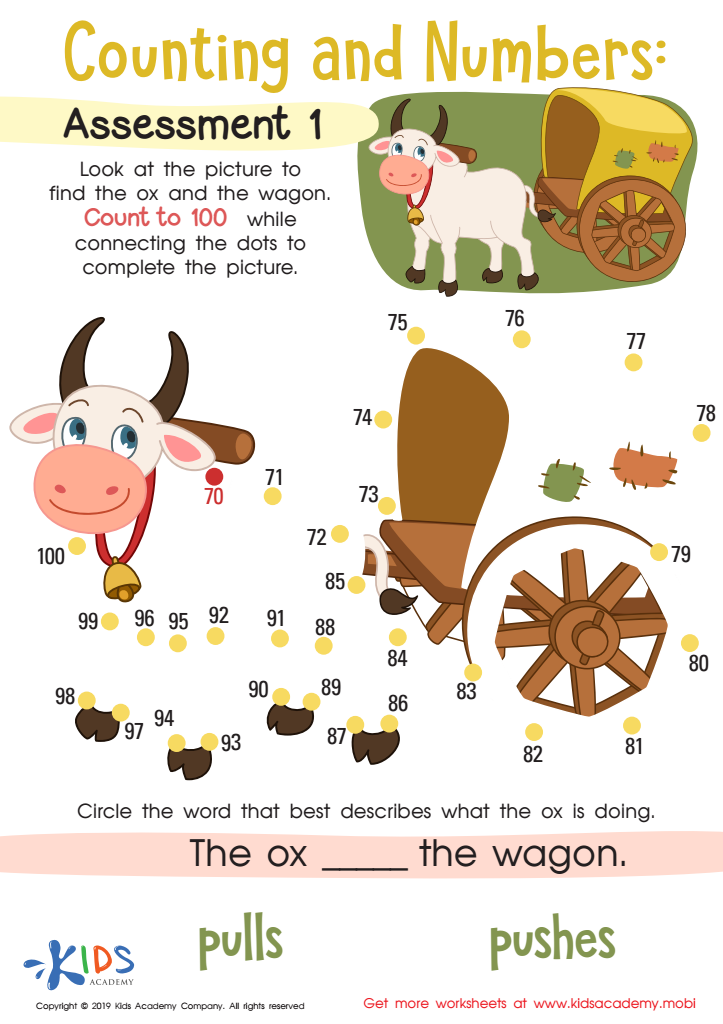

Counting and Numbers: Assessment 1 Worksheet
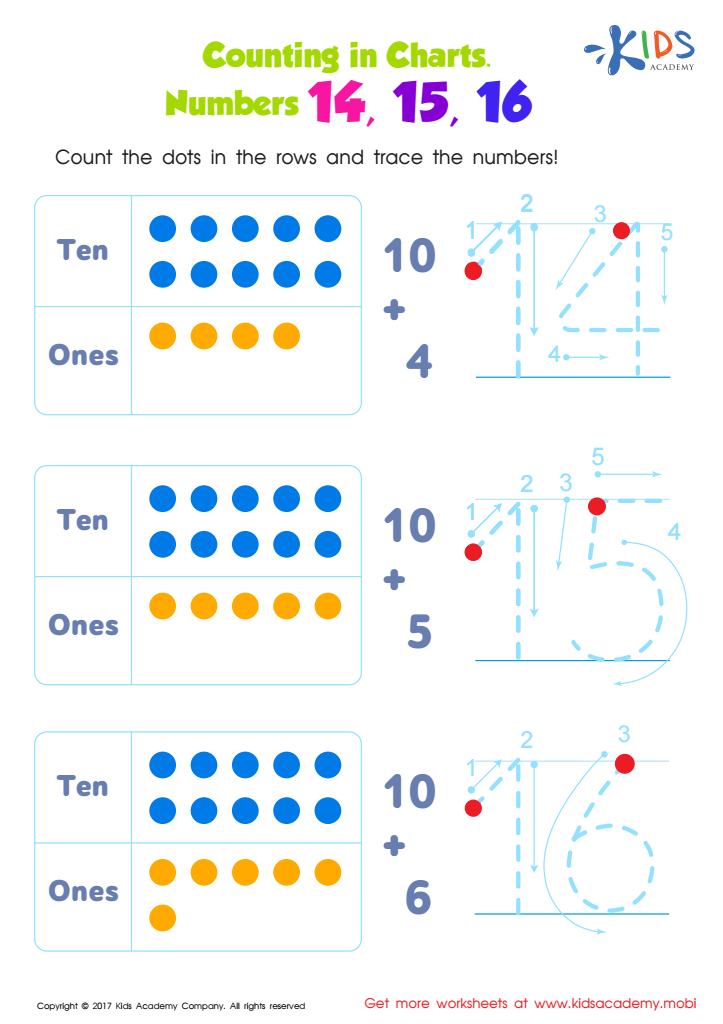

Number Tracing Worksheet
Number recognition up to 100 is a foundational skill essential for young children, laying the groundwork for successful mathematical learning and everyday life skills. For ages 4-9, grasping numbers up to 100 aids cognitive development and helps build the base for complex arithmetic concepts such as addition, subtraction, multiplication, and division. Early familiarization with numbers fosters problem-solving skills and logical thinking, encouraging children to recognize patterns and make connections with the world around them.
Parents and teachers should prioritize number recognition because it boosts confidence in young learners as they progress through school. This skill contributes to improved performance in various educational activities, including counting objects, understanding quantities, and using a number line to solve problems. Number literacy also supports real-life activities, like managing money, telling time, and following sequenced instructions, which are vital for independent living.
Moreover, early competence in number recognition correlates with higher academic achievement in later years, as math serves as a critical subject that supports learning in science, technology, engineering, and more. Therefore, fostering a strong understanding of numbers up to 100 should be a significant focus for parents and educators, as it equips children with the tools needed for both academic success and everyday functionality.

 Assign to My Students
Assign to My Students
















